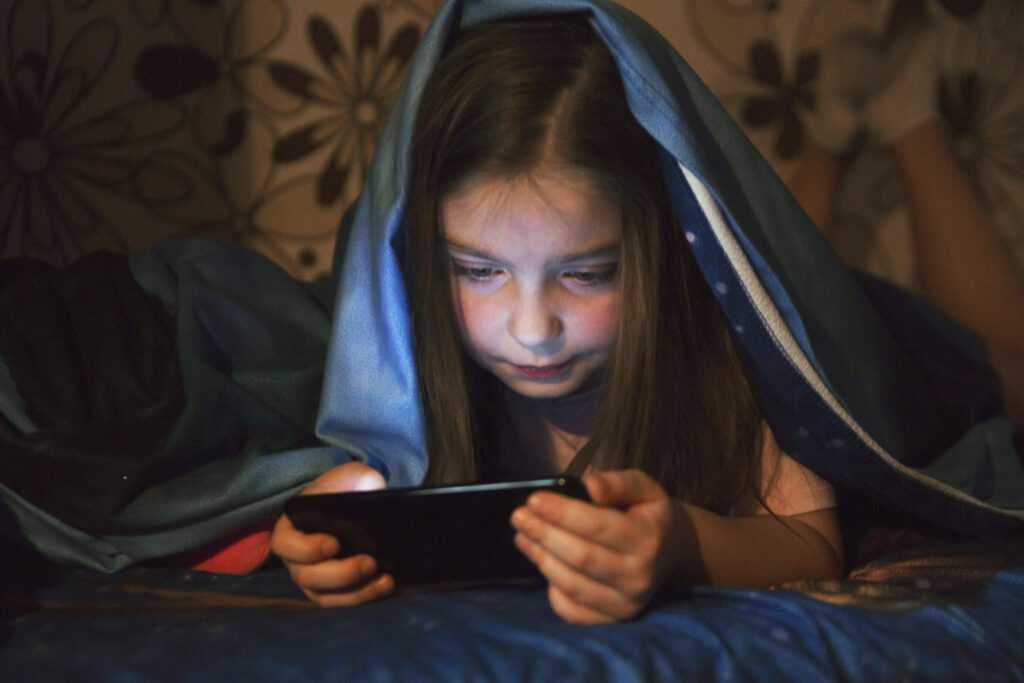In today’s digital age, screen time has become a part of everyday life from work meetings on laptops, scrolling on smartphones, to binge-watching TV shows. While technology connects us, too much screen time is silently affecting our mind and body in ways we often ignore. Let’s uncover how these screens are changing our lives and what we can do about it.
Mental Effects of Excessive Screen Time

1. Increased Stress and Anxiety
Spending long hours in front of screens can overload our brain with constant information, notifications and distractions. This never-ending flow increases mental fatigue, leading to stress. Many of us feel anxious when we don’t check our phones this is called “notification anxiety.” It keeps our brain in a state of alert, even during rest.
2. Sleep Disturbances and Insomnia
One of the biggest effects of screen time is on our sleep quality. Blue light from screens blocks the natural release of melatonin, the hormone that helps us sleep. Using phones or watching TV before bed confuses our brain, making it think it’s still daytime. This leads to difficulty falling asleep, poor sleep quality, and tiredness during the day.
3. Reduced Attention Span
Scrolling through social media or watching short-form videos like reels or shorts trains our brain to expect quick rewards. This reduces our ability to focus for long periods. Tasks that once took 30 minutes now feel impossible without checking notifications or switching tabs.
4. Digital Addiction
Without realizing, many of us develop screen dependency. We check our phones every few minutes, even without a reason. Over time, this can lead to addictive behaviors, making it hard to spend even an hour without screens
Impact on Eyes and Vision

1. Digital Eye Strain (Computer Vision Syndrome)
Staring at screens for long periods causes eye strain, dry eyes, blurred vision, and headaches. This condition is known as Digital Eye Strain. We blink less while staring at screens, which dries out our eyes and makes them tired.
2. Myopia (Nearsightedness)
Increased screen usage, especially in children, is linked to a rise in nearsightedness. Less time outdoors and more time looking at screens up close can affect the way the eyes grow and focus, increasing the risk of vision issues later in life.
Screen Time and Children’s Development

Children are more sensitive to the effects of screen time. Long hours of screen exposure can affect their brain development, learning ability, and social skills. Too much screen time is linked to:
- Speech delays
- Lower academic performance
- Short attention span
- Reduced physical activity
- Behavioral issues
It’s essential for parents to set screen limits and encourage more physical play, reading, and face-to-face interactions.
Mental and Emotional Disconnection
1. Reduced Real-Life Social Interaction
With screen-based communication becoming common, real conversations are decreasing. Many people feel more comfortable texting than talking face-to-face. This can lead to feelings of isolation, loneliness, and weakened social skills.
2. Constant Comparison and Low Self-Esteem
Social media often shows only the highlights of someone’s life. When we see others’ perfect moments, we tend to compare ourselves, leading to jealousy, low self-esteem, and dissatisfaction. This emotional drain can take a serious toll on our mental health.
Tips to Reduce the Harmful Effects of Screen Time

1. Follow the 20-20-20 Rule
Every 20 minutes, look away from your screen and focus on something 20 feet away for 20 seconds. This gives your eyes a much-needed break.
2. Set Screen-Free Hours
Create device-free zones during meals, before bed, and early in the morning. This helps you connect more with family, and improves sleep.
3. Use Blue Light Filters
Turn on blue light filters or night mode on your devices after sunset to protect your eyes and support healthy sleep patterns.
4. Move Every Hour
If your work demands screen time, make sure to stand up, stretch, or walk around for 5 minutes every hour. This helps your body stay active and reduces stiffness.
5. Track and Limit Screen Usage
Use apps to track how much time you spend on each app or screen daily. Set limits, and replace some of that time with hobbies, walks, or conversations.
Final Thought
Technology is here to stay, but our health shouldn’t suffer because of it. Awareness is the first step toward change. By making small changes in our daily routine, we can protect our mind, body, and relationships from the silent harm of too much screen time.
Take a break. Breathe. Step outside. Look around. Your eyes, your mind, and your heart will thank you.
